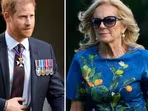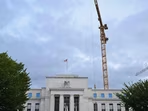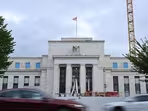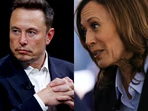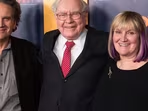Ukraine might join NATO, India should call out Russian aggression: Former Swedish PM Carl Bildt | Exclusive
New Delhi: Ukrainian President Volodymyr Zelensky confirmed that Kyiv’s forces are now fighting inside Russia, following a surprising cross-border incursion into Russia’s Kursk region—a significant embarrassment for the Kremlin. In his Saturday night address, Zelensky praised Ukraine’s military for “restoring justice” and applying “necessary pressure on the aggressor,” acknowledging the efforts of every unit involved in pushing the war into Russian territory. In response, Moscow has been scrambling to contain the attack, imposing a sweeping counter-terror operation in Kursk and two other border regions, with tens of thousands of residents evacuated from the area.
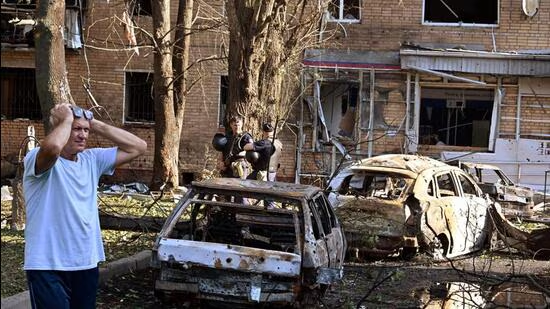
As Ukrainian forces continue to gain ground in their incursion into Russia, former Swedish Prime Minister and current Co-Chair of European Council on Foreign Relations (ECFR), Carl Bildt, discussed with Hindustan Times the future of the Moscow-Kyiv conflict, Sweden’s decision to join NATO, the possibility of Ukraine securing the same membership, the US election’s impact on it, and India’s reluctance to explicitly label Russian aggression.
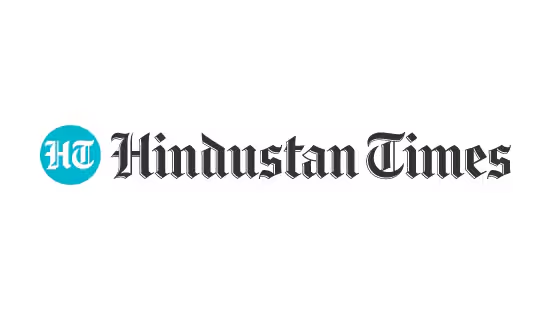
Edited excerpts from the interview:
Q. Do you think Ukraine will ever secure a NATO membership?
“That’s entirely possible, though not guaranteed. What is certain is that Ukraine will require strong support for its defence efforts in the coming years. It has already shown impressive capabilities—few expected it could withstand the full onslaught of the Russian army.”
Q. What’s your assessment of the current situation in Ukraine, and what do you think is the most likely outcome of the conflict, given that Putin seems to have an advantage and aims to control?
“Ther’s little doubt that Putin’s ambitions extend beyond just controlling parts of Ukraine—he wants control of the entire country and its eventual integration into a larger Russian empire. Control of the East and Southeast could be a step toward that goal. So, currently, the situation appears to be a stalemate.
“Russia’s military offensive this spring and summer has yielded only marginal gains. After a weaker position in the spring, Ukraine’s defence has been bolstered by new Western support and fresh mobilisation. I believe the Kremlin is now waiting for the outcome of the US presidential election, which will set the stage for new conditions in 2025.”
Q. How does the US polls impact the outcome of the Russia-Ukraine war? Do you think that if Trump returns to the White House, it will affect the financial assistance secured by Ukraine, so far?
“Trump has stated that he would halt financial aid, and his vice presidential candidate, JD Vance, has been even more emphatic. However, when it comes to financial support, Europe plays a far more crucial role, and that is likely to continue. The US, on the other hand, is more significant for certain aspects of military assistance.”
Q. What drove Sweden’s decision to join NATO, and how does this align with the country’s historical neutrality stance?
“We effectively abandoned neutrality when we joined the EU in 1995. At that time, NATO membership wasn’t a priority, as we were hoping for a period of peace and cooperation. However, with Russian aggression in 2022, both Finland and Sweden faced a fundamentally new situation, making NATO membership both natural and necessary.”
Q. How does Sweden’s NATO membership impact the regional security dynamics in the Baltic and Nordic regions?
“It certainly enhances our combined defence potential. We can now integrate efforts and operations in ways that were previously more challenging. Most importantly, we can provide strategic depth to the defence of the three Baltic states.”
Q. How seriously does Sweden take Putin’s threats? Also, do you believe Putin’s aggression will escalate in the near future?
“Everything depends on the outcome of his war against Ukraine. If he succeeds there, Moldova will be his next target at the very least.”
Q. How does Sweden’s NATO membership impact Putin’s calculus, and do you think it will influence his decision-making?
“It was definitely something he hadn’t anticipated. Rather than stopping or reversing NATO’s expansion, he ended up accelerating it. However, I don’t believe it has a significant impact on his strategy in the ongoing war.”
Q. Can Sweden and NATO play any role in facilitating a peaceful resolution to the conflict?
“That’s exactly what we’re aiming to achieve by providing strong support to Ukraine. A political solution can only become possible when Putin realises that there is no military path to success. However, we haven’t reached that point yet.”
Q. Do you think a change in US leadership could impact NATO’s cohesion and response to Russian aggression and conflict in the Middle-East?
“We don’t know for certain, but I do believe there could be a substantial difference between a Harris and a Trump administration in both these respects. That being said, unpredictability is perhaps what characterises Trump more than anything else.”
Q. Given Sweden’s historical emphasis on neutrality and non-alignment, how will its NATO membership impact its approach to balancing relations with China, and what implications might this have for the Indo-Pacific region, where China’s influence is growing?
“Our NATO membership doesn’t affect this. However, the EU pursues a common external trade policy, and within that framework, we are eager to promote increased trade and economic ties with other Asian countries. We have important free trade agreements (FTAs) with several countries in the region and are, of course, seeking one with India as well. This is crucial not only for providing these countries with a viable alternative to trade with China but also for offering the same to our economies. We must not overlook the long-term impact of China strengthening its ties with these nations.”
Q. Do you think India’s decision to maintain its strategic autonomy and not join NATO Plus was a clever move to avoid being drawn into great power rivalries and maintain its ability to counter China’s aggression on its own terms?
“India is part of the great power rivalry, whether it seeks to be or not. The question is how best it can pursue its interests and promote the values that are important to India. From our point of view, it is sometimes challenging that India does not explicitly label the Russian aggression against Ukraine as aggression and is sometimes seen as wavering on the issue of territorial integrity. Here, India should have a clear interest, not least in view of possible future Chinese designs.”
Disclaimer: The copyright of this article belongs to the original author. Reposting this article is solely for the purpose of information dissemination and does not constitute any investment advice. If there is any infringement, please contact us immediately. We will make corrections or deletions as necessary. Thank you.
Title:Ukraine might join NATO, India should call out Russian aggression: Former Swedish PM Carl Bildt | Exclusive
Url:https://www.investsfocus.com

